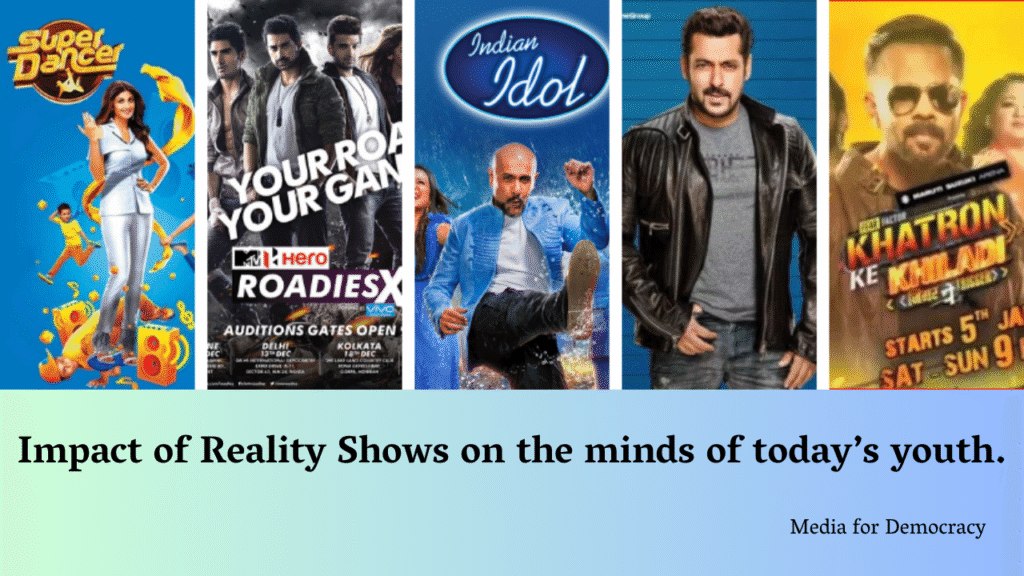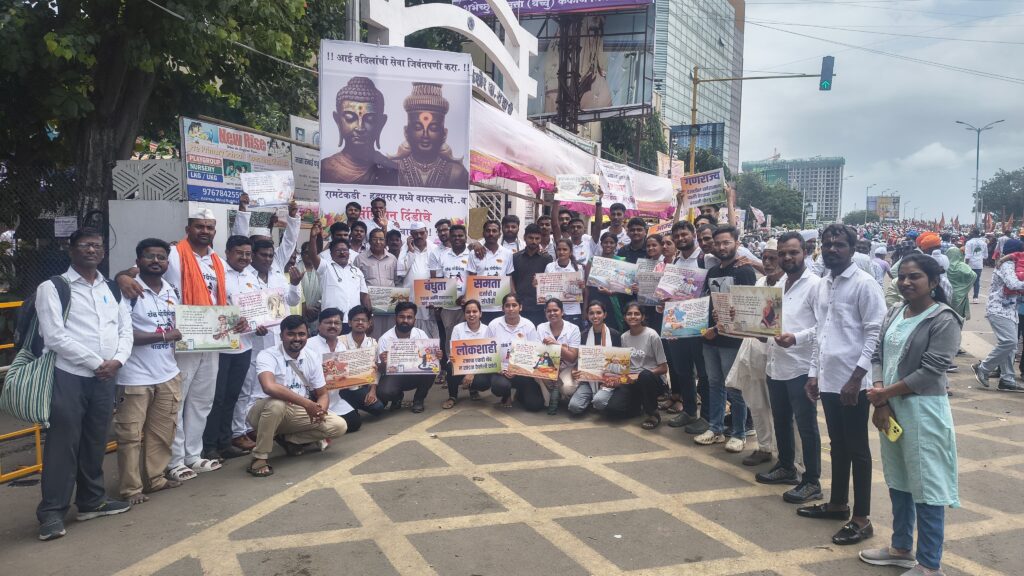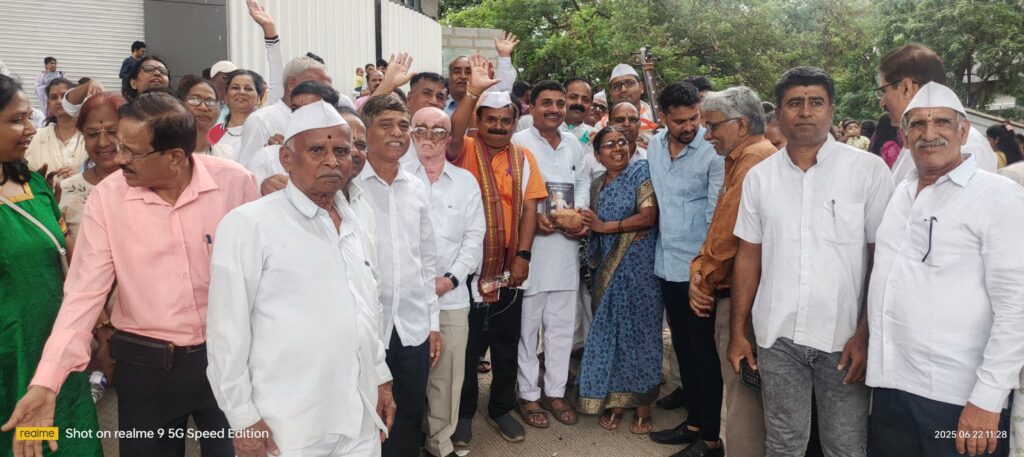Kartik Nair | 10th September 2025
From singing competitions like Indian Idol, Sa Re Ga Ma Pa, The Voice to dating shows like Temptation Island: India and IRL: In Real Dating, reality shows have become a big part of today’s youth entertainment. But while these shows provide fun and engagement, they also shape the minds of young audiences. With impressionable minds, this influence affects how they behave and what they believe to be true. Shows like Bigg Boss, Splitsvilla, and MTV Roadies are popular among today’s youth because of their high-energy and engaging content.
Reality shows are everywhere nowadays—from television to YouTube, and most recently, OTT platforms. The more exposure a person has to such content, the more it imprints on their mind. The purpose of this article is to understand the impact of reality shows on today’s youth: is it for the better, or for worse?
An Addictive Popularity That Beckons
An important question we should ask ourselves is: why do reality shows attract such a huge Gen Z and Gen Alpha fan following? Opinions differ, but many believe it’s the “drug of instant fame” that appeals to them. Young people either aspire to that fame or become hooked on watching it.
Why only reality shows? Because they portray ordinary people in a relatable manner. When viewers identify with the content on a personal level, it leaves a lasting impression. The psychological connection is the driving force behind most of the impact.
The drama, the heat of competition, and the thrill these shows provide are unmatched. The way they are scripted and produced also adds to the appeal. Easy access through mobile phones has been another plus. Content can be watched anytime, anywhere, and even downloaded for later. Short-form content like YouTube Shorts and clips further fuel this popularity.
The Positive Side
Reality shows have both positive and negative effects on young people. On the positive side, they give hidden talent a platform. Singing, dancing, and cooking competitions have helped many youngsters from small towns showcase their skills and build careers.
For example, many singers who began with shows like Indian Idol and Sa Re Ga Ma Pa have gone on to become successful playback singers—such as Shreya Ghoshal, Neha Kakkar, and Sunny Hindustani, among others.
The Negative Side
On the flip side, much of what is shown on reality TV is scripted, creating false expectations among youth. Some shows glorify fights, bullying, or toxic behavior, which young audiences often imitate. Parents also worry about addiction—youth spending hours glued to screens and neglecting studies or other activities.
In some cases, risky stunts or adult content are shown without proper warnings, making them unsafe for younger viewers.

Expert Opinion
Dr. Rajesh Advani, a healthcare professional with more than 20 years of experience, says:
“This is not setting good morals for the youth. Every relationship is unique, but these shows portray irrational and unbalanced behavior. They are not rooted in Indian culture. When youngsters watch such content, they drift away from their roots and adopt a Westernized style that may not suit them.”
Professionally, he adds that the impact goes deeper than surface-level expectations of success. Reality shows can reinforce negative stereotypes and body image issues. By focusing on physical appearance, they create unrealistic standards of beauty and pressure young audiences to conform.
The competitive nature of these shows can also lead to feelings of inadequacy, self-doubt, anxiety, or even depression. Constantly comparing themselves to others’ achievements lowers self-esteem and affects mental well-being.
The Psychological Pitfalls
- Distorted Reality: Young viewers often lack the maturity to distinguish between scripted content and reality.
- Unrealistic Body Image: Shows that glorify “perfect” looks or lavish lifestyles can make youngsters insecure, leading to body shaming and low confidence.
- Anxiety and Depression: Failing to live up to celebrity standards may cause sadness and self-doubt.
- Negative Behavior: Aggression, fights, and rudeness shown on-screen may be mirrored in real life.
- Wrong Social Learning: Gossiping, plotting, and toxic friendships can be normalized.
- Brain Addiction: Reality shows trigger the brain’s reward system, much like favorite foods or games, making viewers crave more—even when they know it’s fake.
Reality shows can inspire and entertain, but watching them responsibly is crucial.
Ethical Responsibilities of Creators
- Content creators and producers also bear responsibility for how these shows impact youth:
- Add age-appropriate guidelines and content warnings before shows begin.
- Avoid promoting fights and violence solely for TRPs (Television Rating Points).
- Provide counseling for disqualified contestants to help them cope.
- Promote positive values like teamwork, kindness, and skill development.
- Be transparent about what is scripted versus real.
Reality shows are not going away. But if creators act responsibly and viewers stay aware, they can continue to entertain while keeping young minds safe.
Kartik Nair is a media researcher who studies cinema, culture, and social change. His work explores how films and popular narratives shape public understanding of issues like caste, inequality, and representation in contemporary India.



